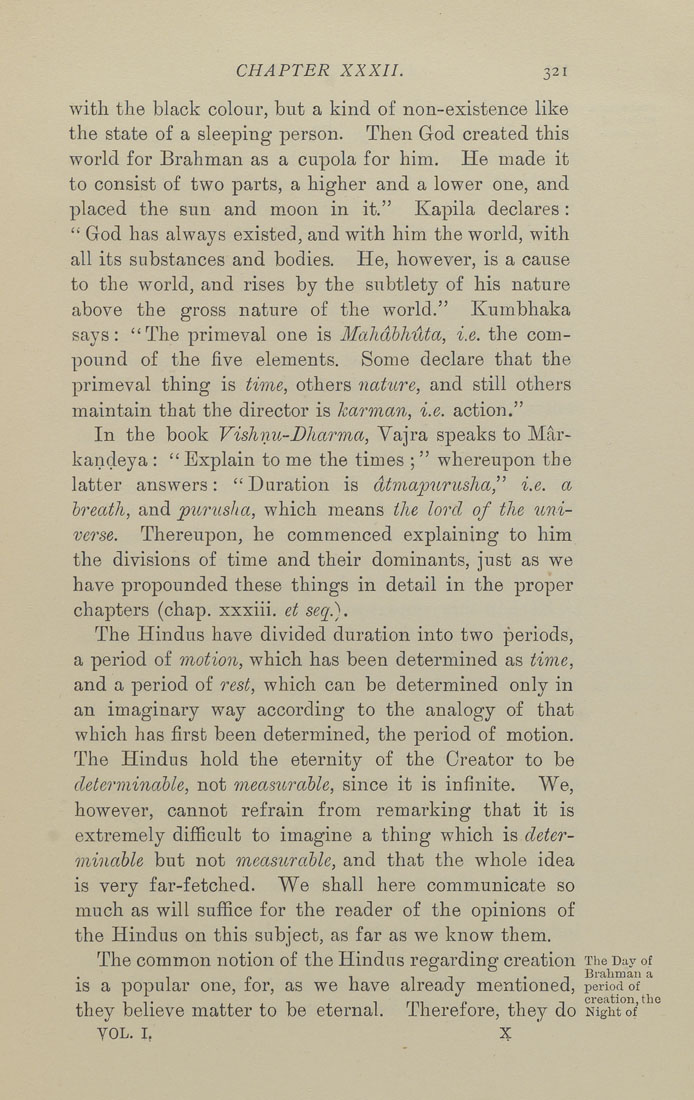Bīrūnī, Muḥammad ibn Aḥmad, Alberuni's India (v. 1)
(London : Kegan Paul, Trench, Trübner & Co., 1910.)
|
||
|
|
|
|
| Page 321 |

CHAPTER XXXII. 321 with the black colour, but a kind of non-existence like the state of a sleeping person. Then God created this world for Brahman as a cupola for him. He made it to consist of two parts, a higher and a lower one, and placed the sun and moon in it." Kapila declares : " God has always existed, and with him the world, with all its substances and bodies. He, however, is a cause to the world, and rises by the subtlety of his nature above the gross nature of the world." Kumbhaka says: "The primeval one is MahdbhiXta, i.e. the com¬ pound of the five elements. Some declare that the primeval thing is time, others nature, and still others maintain that the director is karman, i.e. action." In the book Vishnu-Dharma, Vajra speaks to Mar¬ kandeya : " Explain to me the times ;" whereupon the latter answers: "Duration is dtmapurusha,^' i.e. a breath, and purusha, which means the lord of the uni¬ verse. Thereupon, he commenced explaining to him the divisions of time and their dominants, just as we have propounded these things in detail in the proper chapters (chap, xxxiii. et seq.). The Hindus have divided duration into two periods, a period of motion, which has been determined as time, and a period of rest, which can be determined only in an imaginary way according to the analogy of that which has first been determined, the period of motion. The Hindus hold the eternity of the Creator to be determinable, not measurable, since it is infinite. We, however, cannot refrain from remarking that it is extremely difficult to imagine a thing which is deter¬ minable but not measurable, and that the whole idea is very far-fetched. We shall here communicate so much as will suffice for the reader of the opinions of the Hindus on this subject, as far as we know them. The common notion of the Hindus regarding creation The Day ot . „ . _ . Brahman a IS a popular one, lor, as we iiave already mentioned, period of they believe matter to be eternal. Therefore, they do Night of VOL. I. X |
| Page 321 |







